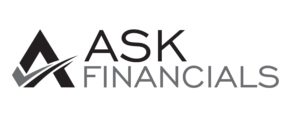Making your first home purchase is exciting, but choosing a mortgage is overwhelming with a hundred options. How do you choose the mortgage that best suits your budget, long-term goals, and most importantly, your financial comfort? A systematic approach to comparing the various mortgage offers will help you make the right decision.
This guide will walk you through the most important considerations in the comparison of mortgage offers – in that order, from interest rates to fees, then to loan terms and flexibility options.
Key Factors to Compare in Mortgage Offers
Mortgage offers from various lenders vary significantly. When compared individually, you can determine an offer that suits your financial requirements and gives you the best deal in the long run.
Interest Rates
Interest rate is the most important feature that any mortgage deal should possess. That means one will save thousands of dollars over the lifetime of the loan. When comparing rates, keep in mind the following pattern:
Fixed vs. variable rates: Fixed rates provide stability over some time. Variable rates change with market conditions, and you might end up saving on interest or shelling out some more.
Comparison Rate: This looks at both the interest charged and most of the fees and gives you a more accurate picture of how much the loan is likely to cost you.
Compare the rates from the various lenders, and then try to evaluate options with fixed versus variable rates so that you can determine which loan better aligns with your tolerance for risk and your other financial goals.
Loan Tenor
Tenure simply means the number of months or years the loan has outstanding. Typically, the tenant chooses the monthly payments and interest for the entire loan lifetime.
Here’s how you should balance this:
Shorter Loan Terms: 15-20 years. Monthly payments are higher, but the total interest paid over the life of the loan is less.
Longer Loan Terms: 25-30 years. While the monthly payments decrease, the total interest paid increases.
Your loan term will impact not only your budget but also the final cost of the loan, so it is essential to select the right term that works best for your financial condition and home ownership.
Cost and Service Charges
Many mortgage offers include additional fees that can be quite substantial between different lenders. Some of the more important fees include, but are not limited to,
Establishment fees are also known as application fees or setup fees. These fees are the costs payable for processing your loan.
Recurring Fees: account fees, which can total up on a monthly or yearly basis.
Exit Fees and Break Costs: Some lenders charge an exit fee, often referred to as a “break cost,” if you plan to pay off your loan early or switch to a different loan.
Flexibility Options with Your Loan
More flexibility on a loan allows you to have greater control over your mortgage and, in some instances, save money in interest. Options for flexibility are:
Offset Accounts: By storing savings in a loan-related account, an offset account enables you to pay less interest on your mortgage.
Redraw Facilities: This facility enables you to withdraw additional repayments if necessary to cover those unwanted expenses.
Extra Repayments: Some lenders permit extra repayments on the loan without penalty. This works to reduce interest and shorten the life of the loan.
Decide whether these features are valuable for your lifestyle and your situation. For example, features such as offset accounts really appeal to buyers who want to minimize their overall interest cost over time.
Lender Reputation and Customer Service
Choosing a lender with a favorable reputation and strong customer service can make a huge difference in your experience. From quick responses to transparent processes, the right lender will offer support throughout the mortgage’s life. When reviewing lenders:
Read Reviews: Check customer feedback on third-party sites to see how past clients rate their experience.
Don’t hesitate to ask about their communication practices, response times, and loan processes.
Working with a supportive and reputable lender can simplify the home-buying process, especially for first-time buyers.
Practical Tips for Choosing the Right Mortgage Offer
Here are some practical tips for comparing and selecting the right mortgage offer for your first home:
Make a Priority Checklist: Identify what is most important to you, whether it is interest rates or flexibility.
Compare Total Costs: Use online calculators that include costs like interest, fees, and additional features for a total comparison.
Professional advice: Mortgage experts like ASK Financials will know exactly what you require and can help in comparing thousands of lenders and options.
Read all the details: Recognize the circumstances that could link a lender’s interest rate or fees to the type of mortgage, including prepayment.
Consider your plans: Make sure that your selection of a mortgage aligns with your financial goals—for instance, property investment or early repayment possibilities.
How ASK Financials Can Help
Given the numerous factors to consider, the process of comparing mortgage offers can be quite challenging.If you wish to discuss your options further with an experienced professional, then book a free call with ASK Financials
Our expertise can guide you through the home-buying process with confidence and clarity.


